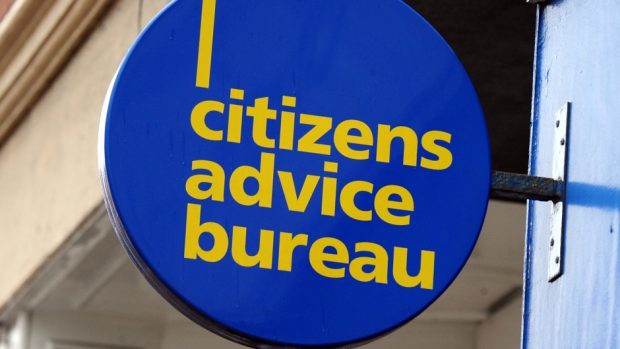The roll-out of Universal Credit has contributed to a “startling” rise in the number of people seeking advice about rent arrears, according to new figures.
Findings from a report published today by Citizens Advice Scotland (CAS) show that the recent changes to the social security system, namely Universal Credit, are predominantly to blame.
Demand for advice from the information service has risen by 47% in the last five years.
Former prime ministers Gordon Brown and Sir John Major are among the political heavyweights who have recently criticised the roll-out of Universal Credit.
CAS spokesman Rob Gowans said: “The rise in rent arrears is one of the most worrying trends we see across the Citizens Advice Bureau network at the moment.
“While there are a number of factors driving this, we have no doubt that the flaws in Universal Credit are one of the main ones.
“For the past 18 months we have been calling for a halt and fix to Universal Credit.
“We have set out again today the key flaws that need to be addressed, including reducing the waiting period before payment, cutting out processing delays and reducing deductions.
“These are relatively simple changes that could make a huge difference to millions of people.”
Figures from 2012/13 show there were 5,340 people seeking advice after getting into difficulty with rent payments, while in 2016/17 that number was 7,856 – a rise of 47%.
In the Aberdeen Citizens Advice office, acting deputy manager Kate Dean said they had seen a “startling increase” in demand for advice. She added: “Universal Credit has a five or six week delay in getting your first payment, so people can easily fall into arrears if they have nothing else to fall back on.
“We would urge anyone getting into financial difficulty to come to us for advice in the first instance – we have money advisors and we could try and negotiate with creditors to work out a solution.
“If people are further down the line and are facing eviction notices, then we would refer them to Shelter – but we would want to try and help before it reaches that stage.”
The report recommends issues with the social security changes are addressed, but also calls for efforts to be made to keep accommodation affordable.
The report highlighted one issue with the homeless community was the high cost of temporary accommodation and that one client had to pay almost £130 a week, which with other “additional costs for homelessness” had led to him being £850 in rent arrears – with no means of paying it off.
Further recommendations include that benefits should cover the cost of housing and landlords follow “best practice” when dealing with those in arrears.
Additional causes for those finding themselves in difficulty were identified as being rent increases, low wages and lack of support for those in need.
Anyone wishing to gain advice on rent arrears can find their nearest Citizens Advice office by visiting: www.citizensadvice.org.uk/scotland/
